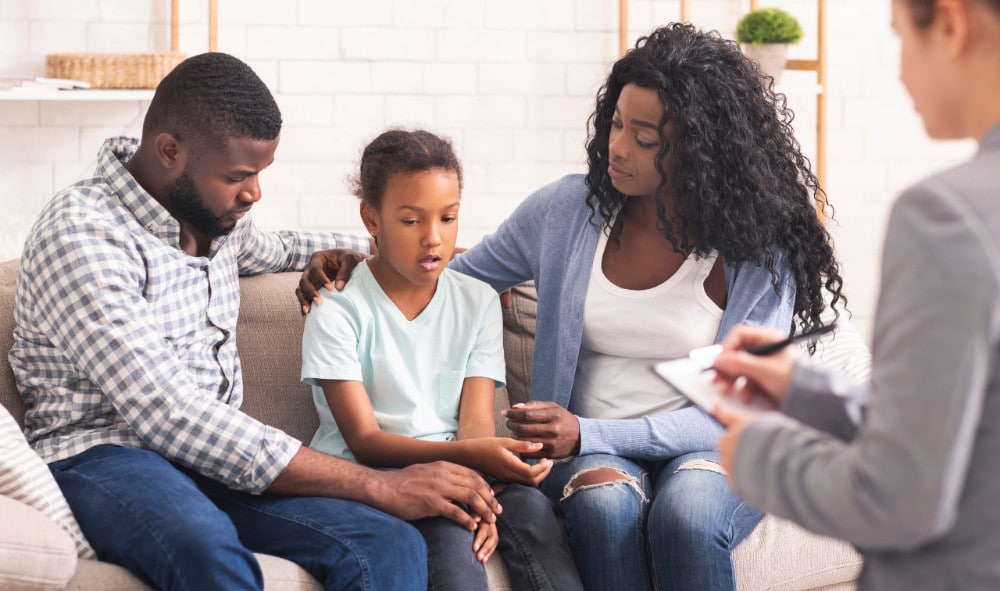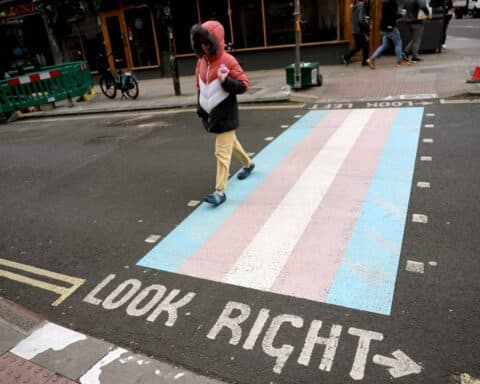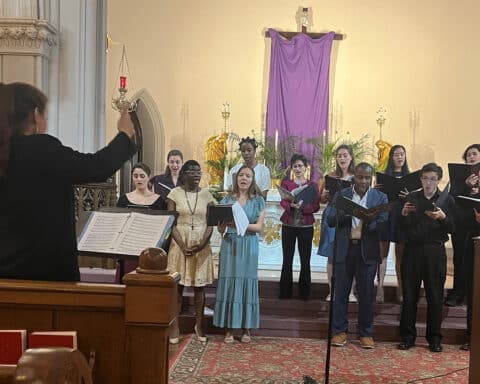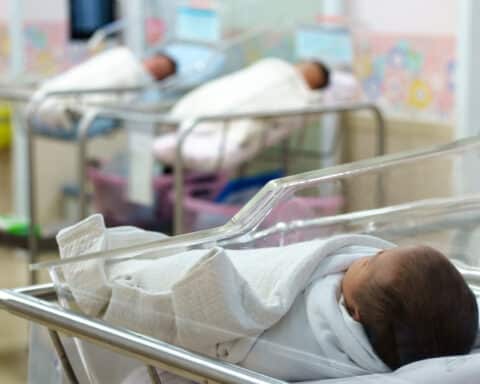Bishop Thomas J. Tobin of the Diocese of Providence, Rhode Island, is calling upon the patronage of St. Dymphna, a seventh-century martyr, to guide his task force that is hoping to combat a 21st-century epidemic: the mental health of the nation’s young people.
The Diocesan Task Force on Youth Wellness is developing a menu of available services that parishes, clergy, schools, parents and youth can turn to for help.
In announcing the effort, Bishop Tobin said: “Post-pandemic, there has been a rapid and intense increase in mental health problems in our society, especially among young people — young adults, teenagers and children. This has led to an exponential increase of anxiety, depression, self-harm and even suicide. The faith community, the Church, has a unique role to play in responding to this crisis. We have professional, pastoral and spiritual gifts we can bring to help support and heal the wounded and frightened members of our community — Catholics and non-Catholics alike.”
Scope of the problem
Nationwide, the numbers are overwhelming, said Dr. Christine Lynch, a clinical psychologist licensed in Colorado, Nebraska and Arizona, who is co-founder of the Catholic Psychotherapy Association and Holy Alliance Support Ministry.
“Many factors have been attributed to this steady growth, especially the breakdown of the family, lack of stable father figures and the easy and constant access to social media platforms,” Lynch told Our Sunday Visitor. “Research has shown that, in the general population, stress is responsible for up to 90% of all doctor office visits; 37% of university and college students have reported moderate or severe depression; 70% of teens report major depression, and 26% reported minor depression.”
Children’s Hospital Colorado declared a “state of emergency” in youth mental health in 2021 for the first time in its 117-year history. Suicide has become the leading cause of death for children in Colorado, and the second-leading cause nationwide. Since declaring this state of emergency, visits to the hospital’s emergency departments for behavioral health issues have only increased. The increase in all these mental health issues has led to a “floating anxiety” — a general, persistent feeling of dread — among youth who constantly look for some kind of relief. According to the U.S. Centers for Disease Control and Prevention, nearly 108,000 people died of drug overdoses in 2021.
Faith and friendship
The initiative by the Diocese of Providence emphasizes the role of faith in addressing the issues, with Bishop Tobin entrusting the effort to St. Dymphna, who is acknowledged by the Church as the patron saint of those with nervous and emotional disorders. Many people facing the challenges of mental illness seek her as a source of prayer, comfort and reassurance that they are in God’s hands.
The Providence group of youth ministry leaders, educators, clergy and administrators is led by Dr. Michael Hansen, director of Human Formation at Our Lady of Providence Seminary.
As valuable as the resources of counseling and intervention are that the task force will offer, Hansen said, “We think the spiritual aspect is essential at this time when people are moving farther and farther away from their faith, and that is certainly a factor in depression and anxiety.”
Lynch said that, as Catholic therapists, the most important healing agent is to meet the person where they are and actively listen to their concerns.
“Active listening along with empathy and clarifying questions can help build a trusting relationship, allowing the person to reach new insights into their struggles and ways to find authentic meaning and happiness in their lives,” Lynch said. “Encouraging them to build healthy peer relationships in order to reengage with one another in school, sports and other activities can help rewire their brains to enable them to co-regulate their emotions with other individuals in order to experience deeper connections with their peers and develop empathy and compassion. It is important to encourage young people to connect with others beyond a screen.”
Helping parents and kids
The Catholic Schools Center of Excellence in Minneapolis launched its Peace of Mind initiative in partnership with Phoenix School Counseling to support Catholic school educators, parents and students to deal with mental health issues. Phoenix works with more than 40 nonpublic schools in Minnesota.
As the Diocese of Providence is doing, the Minneapolis Catholic schools are also relying on faith to guide their efforts, adopting as their motto a quotation from St. Paul’s Letter to the Philippians: “Then the peace of God that surpasses all understanding will guard your hearts and minds in Christ Jesus” (4:7).
Brian Ragatz, president of Catholic Schools Center of Excellence, said the group viewed the issue and asked, “How do we serve the schools best?”
The answer, Ragatz said, is not only to provide the behavioral health services that are needed, but to “include the people in the childrens’ lives who are there to help them.” When everyone is on the same page helping them, “kids are pretty successful.”
Peace of Mind provides resources to Catholic schools to help their preschool through eighth-grade students, families, teachers and leaders “work through today’s difficulties, as well as prepare to handle future challenges,” its website said. To support the “mental health and wellness of everyone in Catholic school communities,” Peace of Mind offers live webinars for educators and families, videos, presentations, in-person training and resources for students.
Jon Mattleman, New England clinical director for Minding Your Mind, speaks to educator groups and parent organizations about 100 times a year about anxiety that afflicts “tweens and teens.”
During one of his talks at Central Catholic High School in Lawrence, Massachusetts, Mattleman told parents that anxiety “is like a learning disability” and should be treated as such. “When kids aren’t achieving, it is because they won’t do it or can’t do it.”
He said it is important that parents learn valuable skills to communicate with their children when anxiety is the issue — for instance, having the child quantify how they feel on a scale of 1-10. “Are you feeling a 5 or a 3 or an 8,” he said, because describing what anxiety feels like in words is nearly impossible.
Joseph R. LaPlante writes from Rhode Island.





